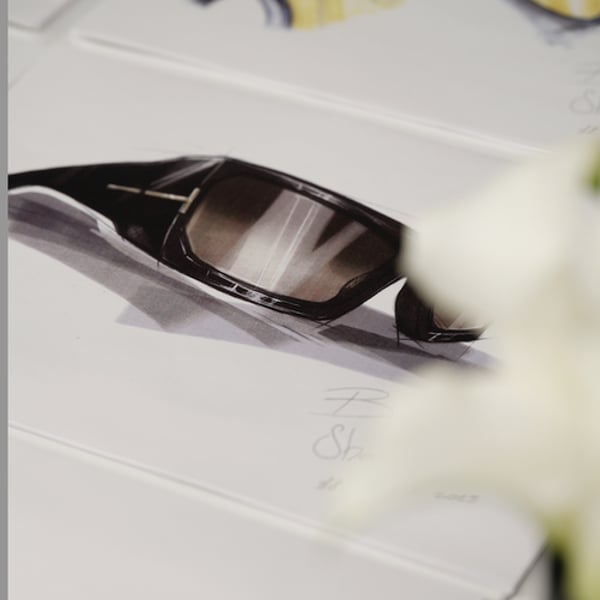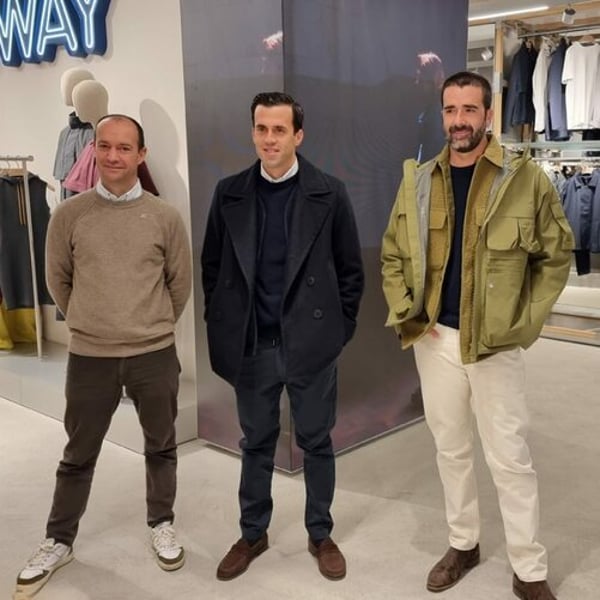Published
November 7, 2025
With its first Paris boutique and fifteen openings this year, Reformation is making its ambitions clear. Established in the Marais from November 6, the brand—founded in Los Angeles in 2009 with a promise of sustainable fashion—now has its first address in France and on the European mainland.

At 20 Rue des Francs-Bourgeois, opposite the Courrèges boutique, the fruits of a year’s work unfold across two storeys. Designed by the brand together with Parisian architecture and design studio Le Cann, the boutique reprises Reformation’s retro-chic, feminine aesthetic with a distinctly French twist. The space is furnished with wooden pieces, paintings, tiles, rugs, vases of flowers, and sofas for friends accompanying shoppers.
A first standalone boutique in Paris
The new boutique is pivotal for Reformation, which plans to make it its European showroom. Hence, the invitation extended to the team at Le Bon Marché to its unofficial opening; the brand has been present there since 2023. While the pieces sold at the department store—currently the brand’s sole partner in France—align with prevailing trends, those at the Marais boutique form a wardrobe tailored to French customers: timeless and classic. This contrasts with the styles sold in the US, Reformation’s home market, where the brand’s clothes are bolder.

Reformation—founded by Yael Aflalo, who has since left the company—finds that its emphasis on sustainability and material quality particularly resonates with French customers, explains Kathleen Talbot, the brand’s director of sustainability and vice president of operations. A technological component complements this sustainable focus. On Rue des Francs-Bourgeois, the company has equipped the space and its seven fitting rooms with touchscreen tablets, allowing customers to reserve items to try on.
Organic growth
The American company plans to open a second Parisian boutique at 14 Rue de Passy (16th arrondissement) in 2026. This year’s opening pace appears to match Reformation’s ambitions, and the company intends to maintain this momentum with 15 to 20 new locations per year. For now, the brand operates 63 of its own boutiques across France, the UK, Canada, and the US. In the US, the brand is currently expanding in major cities such as New Orleans, Nashville, and Charlotte.

The brand also opened new headquarters in Los Angeles this year. While Kathleen Talbot likes to speak of ‘organic growth’ when referring to these openings and Reformation’s results, she applies the term as well to the support the brand enjoys on social media. Although the brand is active there, it benefits from user-led spotlights that can send certain products viral. The brand, which relies on regular new designs produced in limited editions, then has to produce more to meet demand.
Between fast fashion and sustainability
This raises a question Kathleen Talbot is often asked: how can economic growth be reconciled with sustainability? While the brand has made its sustainability credentials the spearhead of its communications, that message collides with the realities of operating as a fast fashion brand.
In its communications, Reformation emphasises its US production (40%), its Los Angeles-based factory and its use of sustainable materials. In recent years, however, the company has faced criticism over a perceived decline in product quality, as well as its use of viscose, which accounted for 20% of its collections in 2023, according to the website FemiGnarly.

‘It’s a difficult question to answer,’ says Kathleen Talbot. ‘Overconsumption is a prominent topic in our internal discussions. We spend a lot of time thinking about how to embed sustainability into the way the brand operates,’ she continues. The director of sustainability notes that Reformation uses deadstock and its own fabric offcuts, and runs a resale and repair programme for its pieces. The company says it mainly uses materials such as organic cotton, linen, lyocell, and recycled fibres, and it aims to achieve circularity for its products by 2030.
This article is an automatic translation.
Click here to read the original article.
Copyright © 2025 FashionNetwork.com All rights reserved.







